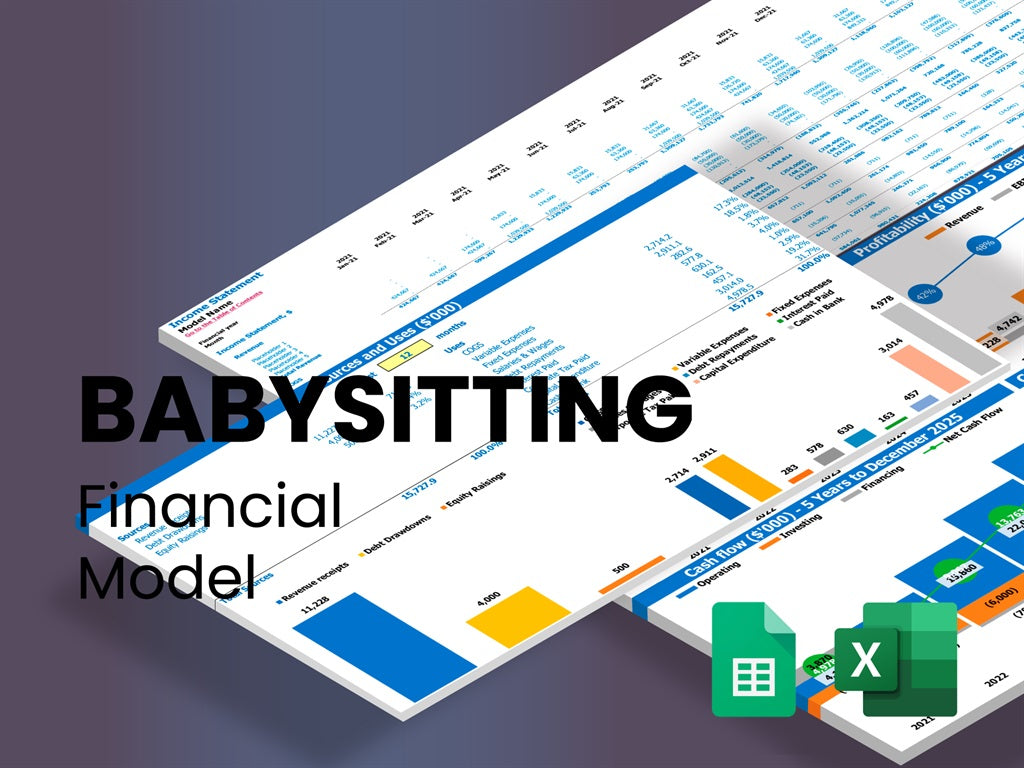Daycare: A Necessary Evil For Working Parents?

Table of Contents
The Financial Burden of Daycare
The high cost of daycare is a significant obstacle for many families. This financial burden can significantly impact a family's budget and overall well-being.
Cost Comparison: A Nationally Varying Expense
Daycare costs vary dramatically depending on location, type of care, and the age of the child. In urban areas, center-based daycare can cost significantly more than in-home care in rural settings.
- Average daycare costs: A recent study revealed annual costs ranging from $8,000 to $20,000+ per year, depending on location and type of care. Monthly costs can range from $500 to $1500+.
- Impact on family budget: For many families, daycare expenses consume a substantial portion of their income, leaving little room for savings or other essential expenses.
- Government subsidies and assistance programs: Several government programs offer financial assistance for daycare, but eligibility requirements and funding limitations can make access challenging.
- Affordable daycare alternatives: Exploring options like subsidized daycare centers, co-ops, or faith-based programs can help mitigate the financial strain.
The Emotional Toll on Parents and Children
Daycare can exact an emotional toll on both parents and children.
Parental Guilt and Anxiety: A Common Struggle
Leaving your child in someone else's care is inherently stressful.
- Separation anxiety: Young children often experience separation anxiety when entering daycare. Strategies like establishing a consistent goodbye routine and maintaining regular communication with the daycare provider can help ease this transition.
- Parental stress: Parents may worry about the quality of care, their child's emotional well-being, and the logistical challenges of daycare drop-offs and pick-ups.
- Finding the right fit: Selecting a daycare that aligns with parental values regarding discipline, education, and overall approach is paramount to reducing parental stress.
Socialization and Development in Daycare: The Upsides
Despite the challenges, daycare offers numerous developmental benefits.
- Social skills development: Daycare provides children with opportunities to interact with peers, learning essential social skills like sharing, cooperation, and conflict resolution.
- Early childhood education: Many daycare centers offer structured learning activities designed to stimulate cognitive development, literacy, and numeracy skills.
- Exposure to diverse cultures: Daycare environments often expose children to diverse cultures and perspectives, fostering tolerance and understanding.
Choosing the Right Daycare: A Critical Decision
Selecting the right daycare is crucial for your child's well-being and your peace of mind.
Factors to Consider When Choosing a Daycare:
- Licensing and accreditation: Ensure the daycare is properly licensed and accredited by relevant authorities.
- Teacher-child ratio and staff qualifications: A lower teacher-child ratio generally indicates higher quality care. Check the qualifications and experience of the staff.
- Safety measures and security protocols: Inquire about safety procedures, emergency plans, and security measures in place at the daycare facility.
- Daycare philosophy and approach to learning: Understand the daycare's educational philosophy and approach to learning, ensuring it aligns with your family’s values.
- Reviews and recommendations: Seek recommendations from other parents and read online reviews to gain insights into the daycare's reputation.
Alternatives to Traditional Daycare: Exploring Options
Traditional daycare isn't the only option available.
Exploring Alternative Childcare Arrangements:
- In-home daycare providers: Family-based settings can offer a more personalized approach.
- Nanny or au pair services: Nannies provide one-on-one care but can be significantly more expensive.
- Family childcare arrangements: Sharing childcare responsibilities with family members or friends can offer flexibility and cost savings.
- Part-time daycare options: Part-time daycare can reduce costs and provide some childcare support while maintaining some flexibility.
- Flexible work arrangements: Consider negotiating flexible work options, such as working from home or compressed workweeks, to reduce the need for full-time daycare.
Conclusion: Reframing the "Necessary Evil"
Daycare presents both financial and emotional challenges. However, labeling it a "necessary evil" is an oversimplification. The benefits of socialization and early childhood education offered by quality daycare should not be overlooked. The key lies in informed decision-making, carefully weighing the pros and cons, exploring various options, and ultimately choosing the childcare solution best suited to your family's unique needs and circumstances. Share your experiences with daycare – both positive and negative – in the comments below. Let's continue the conversation about finding the best daycare or alternative childcare options for your family.

Featured Posts
-
 Should You Invest In This Spac Taking On Micro Strategy A Detailed Analysis
May 09, 2025
Should You Invest In This Spac Taking On Micro Strategy A Detailed Analysis
May 09, 2025 -
 Unexpected Daycare Costs After 3000 Babysitting A Financial Dilemma
May 09, 2025
Unexpected Daycare Costs After 3000 Babysitting A Financial Dilemma
May 09, 2025 -
 The Kilmar Abrego Garcia Case A Microcosm Of Us Immigration Challenges
May 09, 2025
The Kilmar Abrego Garcia Case A Microcosm Of Us Immigration Challenges
May 09, 2025 -
 Xionia Sta Imalaia 23etis Meiosi Kai Oi Epiptoseis
May 09, 2025
Xionia Sta Imalaia 23etis Meiosi Kai Oi Epiptoseis
May 09, 2025 -
 Tang Cuong Giam Sat Ngan Chan Bao Hanh Tre Em Tai Cac Co So Giu Tre Tu Nhan
May 09, 2025
Tang Cuong Giam Sat Ngan Chan Bao Hanh Tre Em Tai Cac Co So Giu Tre Tu Nhan
May 09, 2025
Latest Posts
-
 High Potential Assessing Its Impact On Psych Spiritual Development After A Decade
May 09, 2025
High Potential Assessing Its Impact On Psych Spiritual Development After A Decade
May 09, 2025 -
 High Potential Season 1s Underrated Character A Prime Target For Season 2
May 09, 2025
High Potential Season 1s Underrated Character A Prime Target For Season 2
May 09, 2025 -
 The Trump Presidency A Retrospective On Day 109 May 8th 2025
May 09, 2025
The Trump Presidency A Retrospective On Day 109 May 8th 2025
May 09, 2025 -
 High Potential Replacement Show Could Spoil Roman Fate Before Season 2 Streaming Now
May 09, 2025
High Potential Replacement Show Could Spoil Roman Fate Before Season 2 Streaming Now
May 09, 2025 -
 High Potential Season 1 When Morgan Wasnt So Smart
May 09, 2025
High Potential Season 1 When Morgan Wasnt So Smart
May 09, 2025
